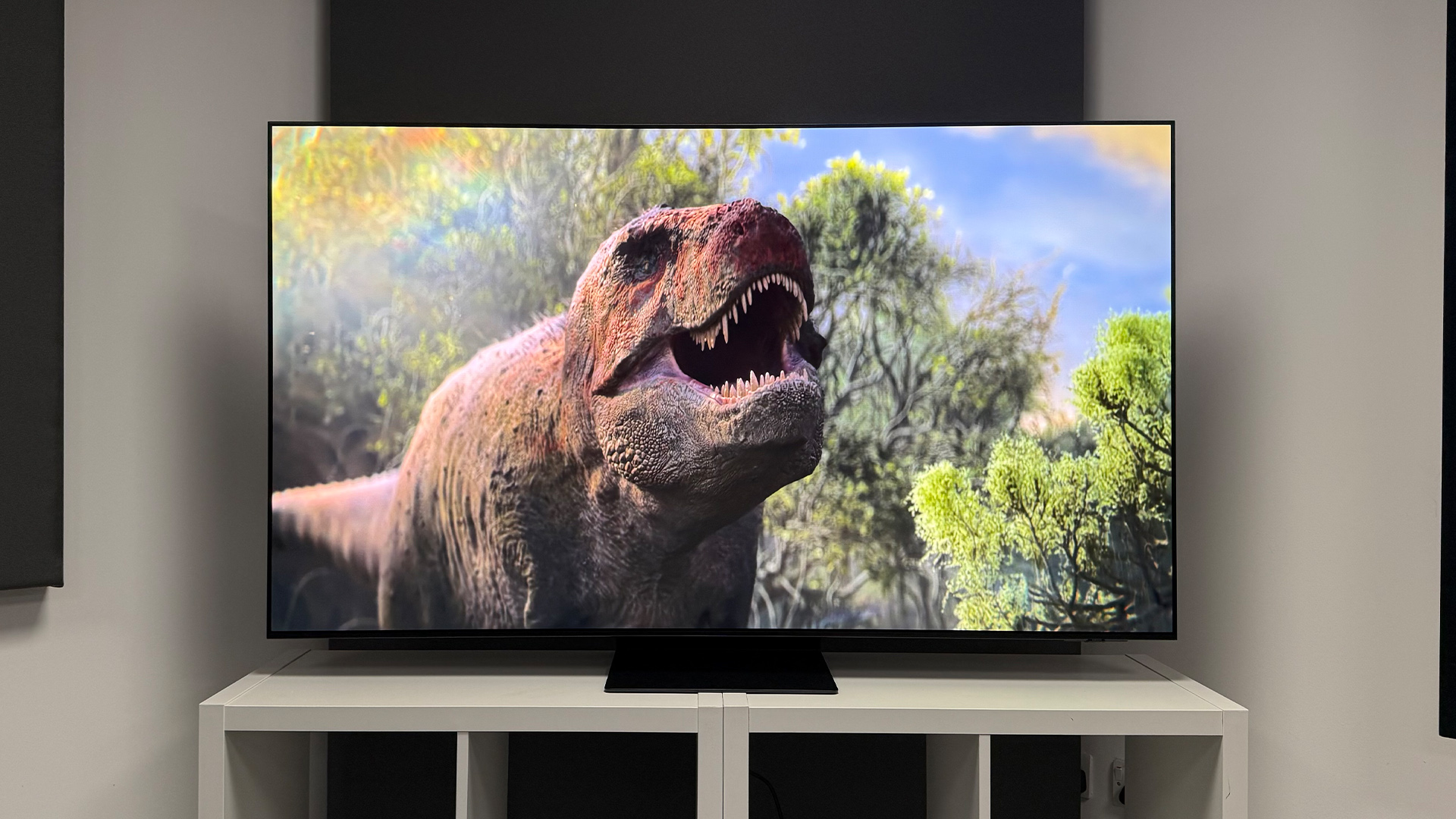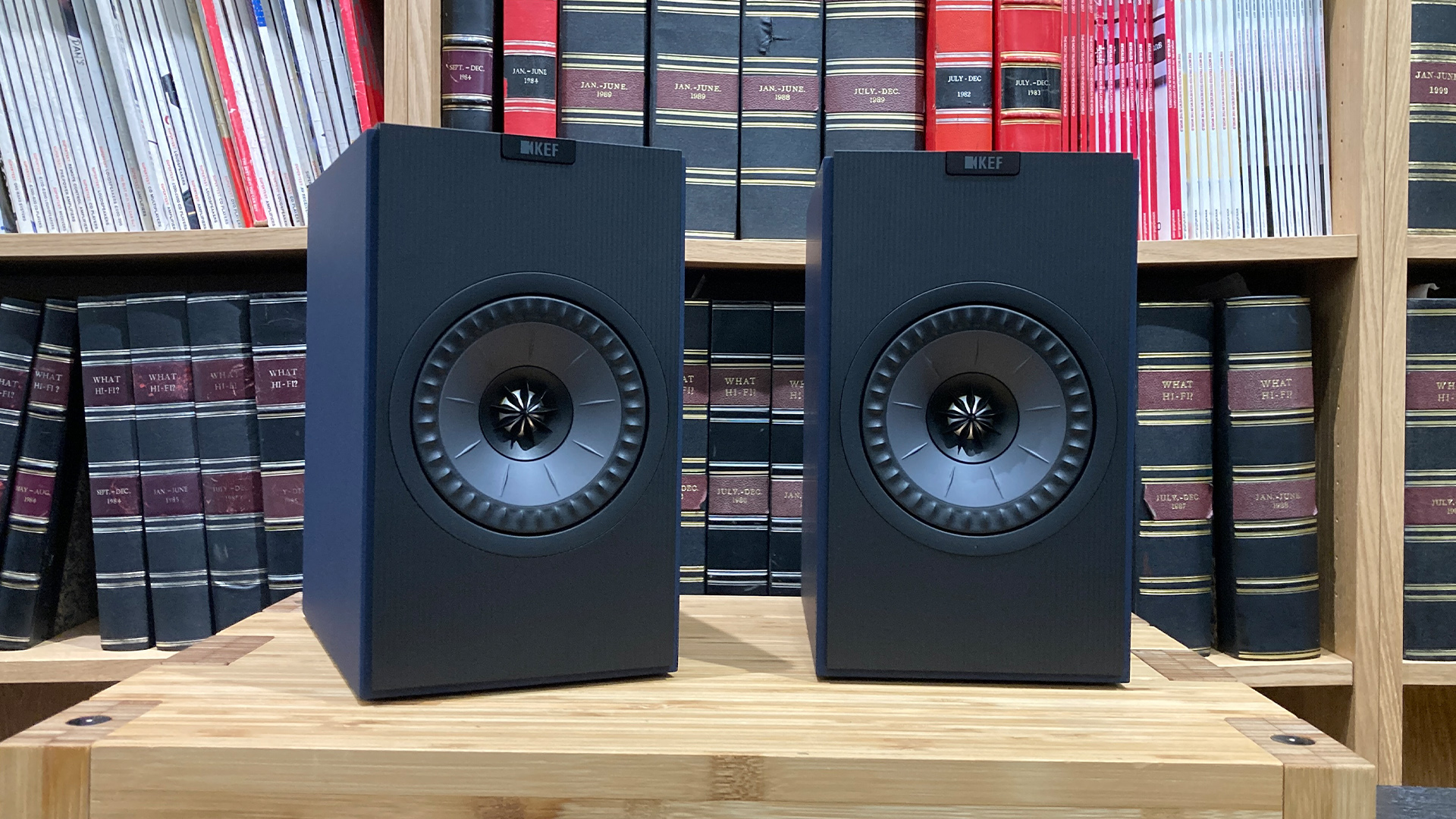What Hi-Fi? Verdict
The Samsung S95F is an exceptional OLED that in any other year would be head and shoulders above the competition – even in the face of 2025’s cohort of next-gen flagships, it’s among the very best, and for many people it will be the perfect TV
Pros
- +
Stunningly bright, vibrant and sharp
- +
Gorgeous design
- +
Excellent gaming features, including four HDMI 2.1 sockets
Cons
- -
Some missing shadow detail
- -
Sound distorts at volume
- -
No Dolby Vision
Why you can trust What Hi-Fi?
It’s taken us a long time to get to the Samsung S95F, the Korean brand’s fourth-generation QD-OLED TV.
Earlier review samples were pre-production sets, which we won’t review, and the first full production samples arrived at a time of heavy congestion in our test rooms.
It’s actually the last of the big four 2025 flagship OLED TVs that we’ve reviewed, which is great for us from a benchmarking point of view, but potentially challenging for Samsung, which probably would have preferred to be compared with last year’s sets than its fellow next-gen OLED rivals.
Actually, though, it’s an added challenge to which the S95F is more than capable of rising. This is arguably the very best all-round TV that Samsung has ever produced, and a strong candidate for TV of the year.
Price
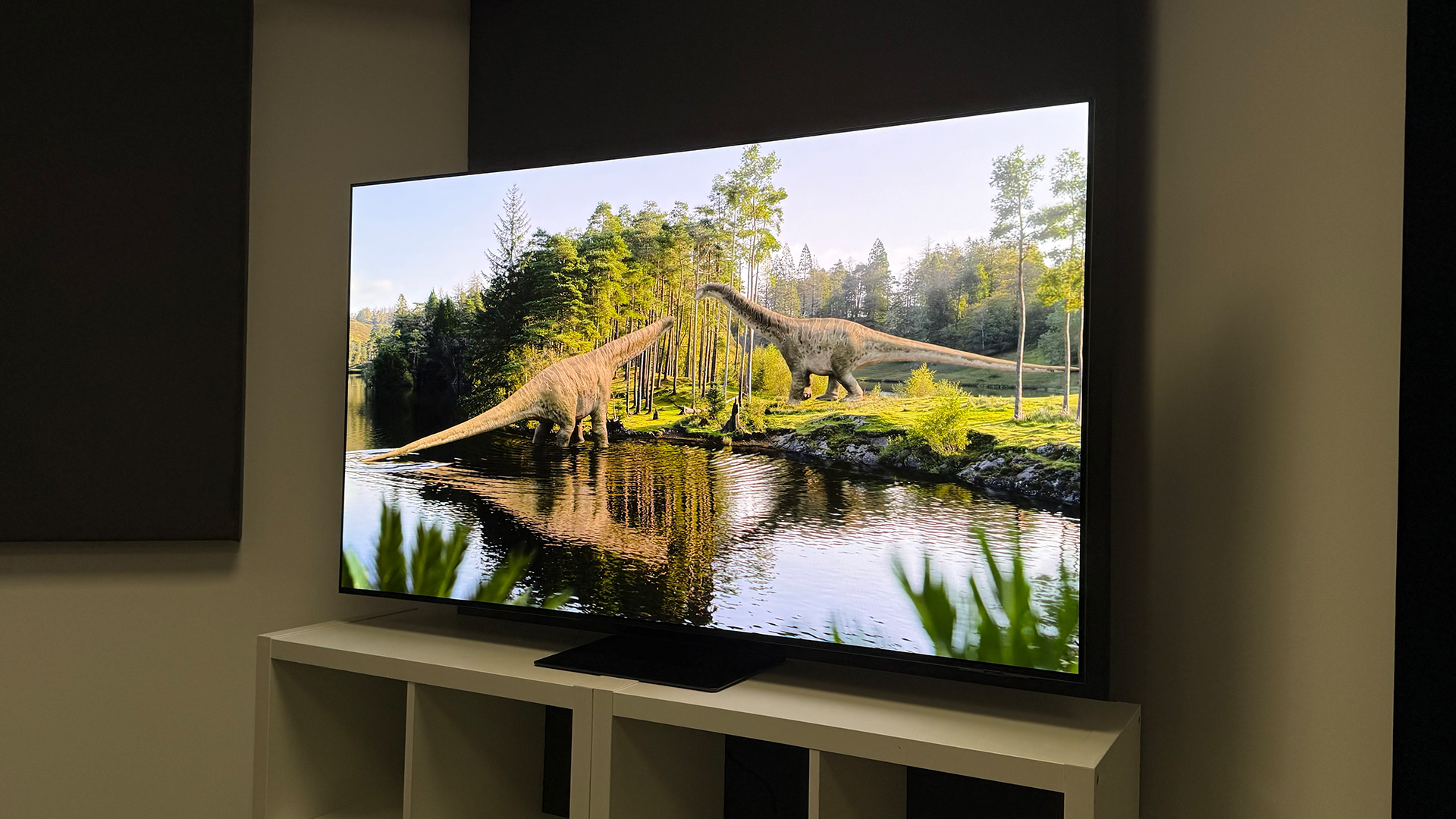
The 65-inch Samsung S95F we have before us today launched at a price of £3399 / $3300 / AU$5299.
Prices have now fallen somewhat, and at the time of testing, you can buy the TV for a significantly reduced £2699 / $2800 / AU$4299.
Samsung and LG tend to duke it out on price rather unsubtly, particularly where premium models are concerned, so it’s little surprise to find that the LG G5 – the Samsung S95F’s main rival – is available for precisely the same price.
The latest hi-fi, home cinema and tech news, reviews, buying advice and deals, direct to your inbox.
What is surprising is how uncharacteristically aggressive Sony has been on the pricing of its Bravia 8 II, which features the same QD-OLED panel technology as the Samsung S95F. Said TV is only a little more expensive than its Korean rivals in the US and Australia, and actually cheaper in the UK.
Of course, prices for all of these TVs will fluctuate, and your buying decision will be influenced by the comparative pricing at the time of purchase. For the purposes of our review, though, we’re going to consider the TVs to be priced the same.
One final note on model numbers: in the UK, the S95F's full model number is QE65S95F ('E' for 'Europe'); in the US, it's QN65S95F ('N' for 'North America'); and in Australia, it's QA65S95F ('A' for, we believe, 'Australasia').
Design
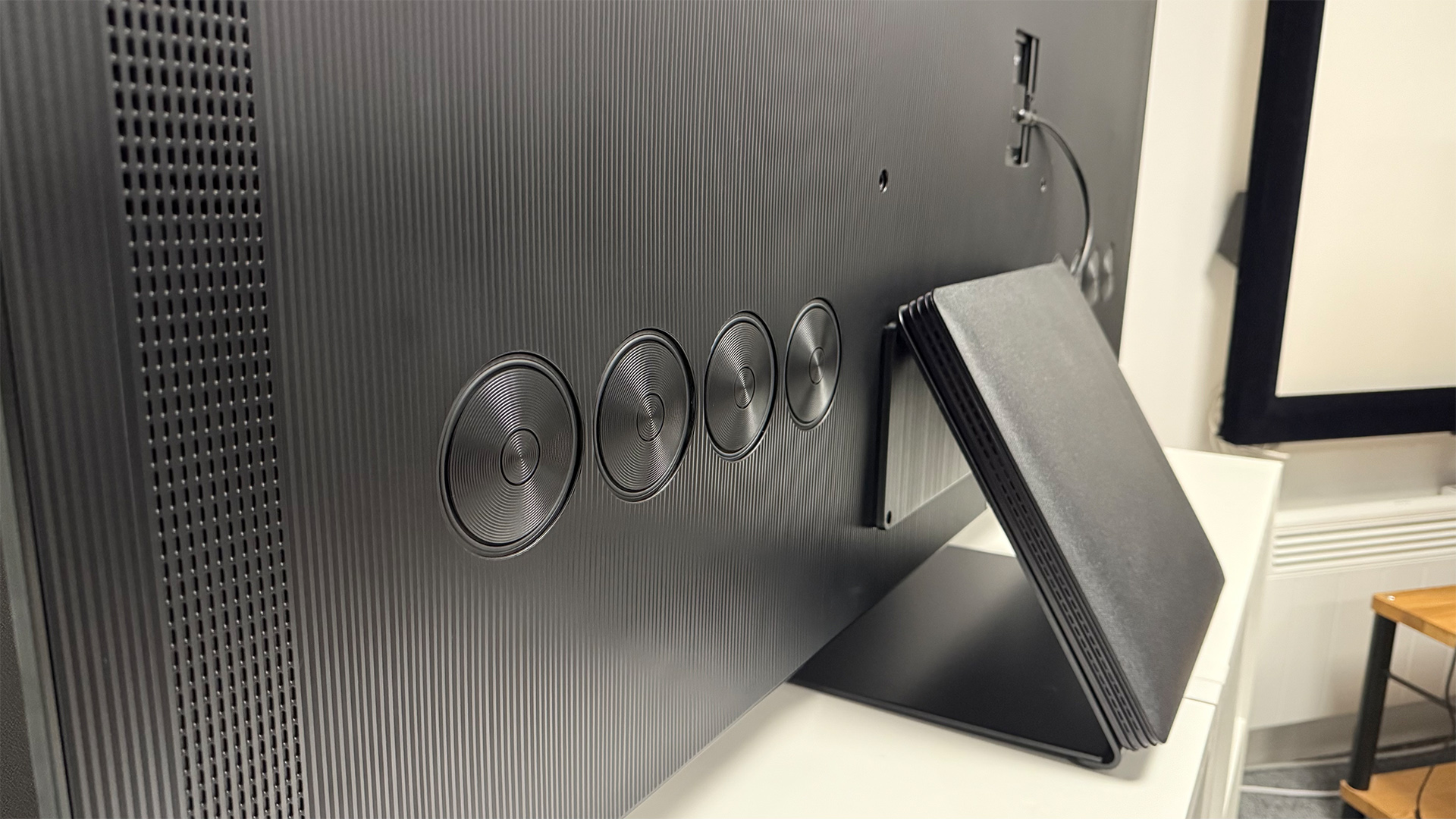
The S95F looks practically identical to its S95D predecessor, and that’s no bad thing, because no rival TV is better looking.
Key to the S95F’s attractiveness is its uniform 1.1cm thickness and premium metal shell. The LG G5 might look like a picture frame, but we would argue that the even-thinner S95F looks even better when hung on the wall.
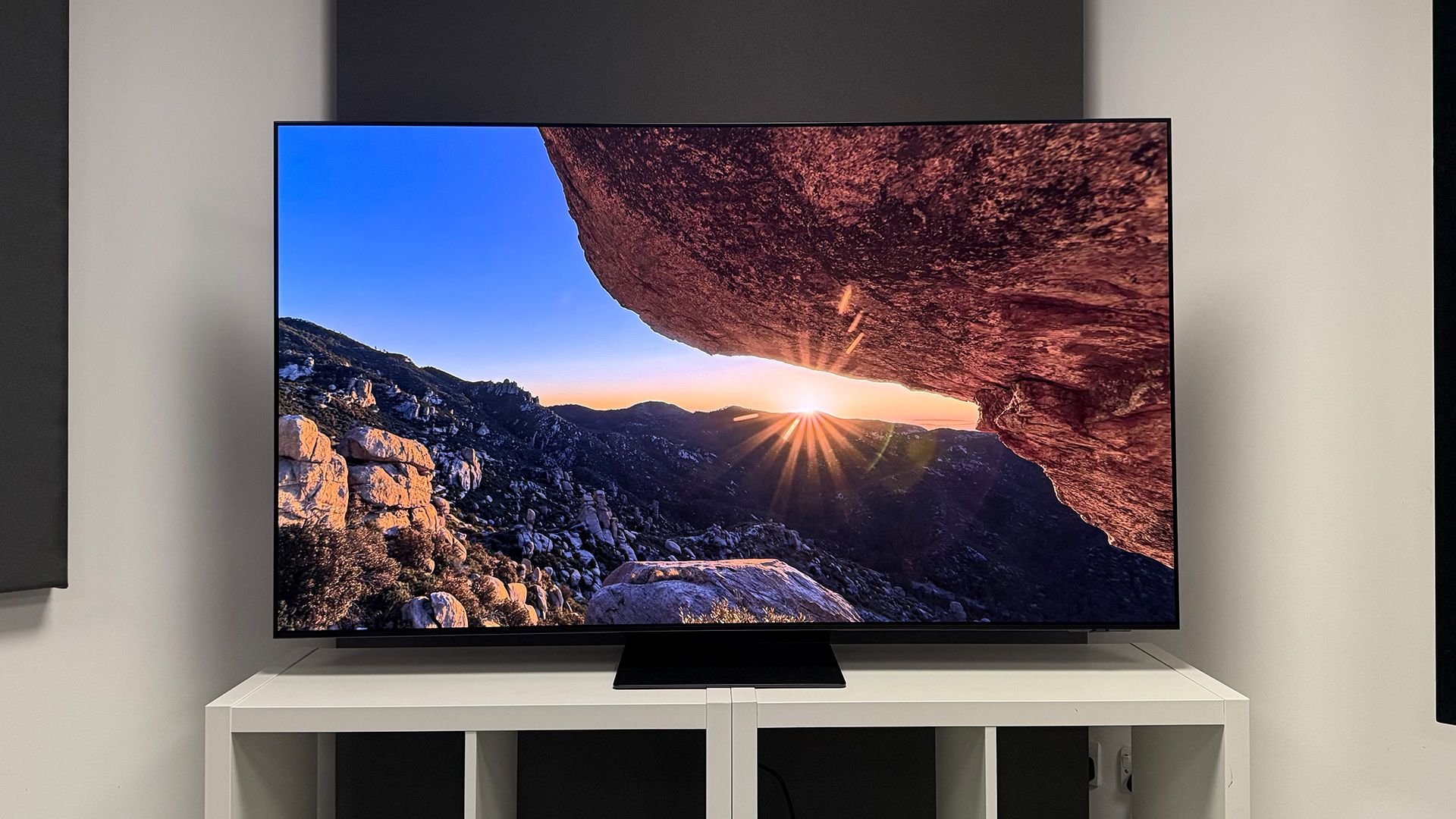
Screen size 65 inches (also available in 55, 77 and 83 inches)
Type QD-OLED (except 83-inch model, which is W-OLED)
Backlight N/A
Resolution 4K
HDR formats HLG, HDR10, HDR10+
Operating system Tizen
HDMI inputs x 4 (all 48Gbps HDMI 2.1)
Gaming features 4K/165Hz, 4K/120Hz, VRR, ALLM
ARC/eARC eARC
Optical output? Yes
Dimensions (hwd, without stand) 83 x 145 x 1.1cm
Samsung has ‘cheated’ to achieve this exceptional thinness, though, by making the S95F, like its predecessors, a One Connect TV.
This means that the processing, connections and power are all housed in a separate One Connect box. This is then connected to the display via a single cable.
In fact, there are two cables in the box – a 2.5m one that allows the One Connect box to be placed out of sight or in a nook (though do make sure it’s ventilated), and a much shorter one for use when the One Connect box is mounted to the rear of the pedestal stand.
That pedestal stand is premium to a fault, in that it’s very heavy, but it does give the TV a very solid base while also being low profile enough to allow a typical soundbar to lie over it.
As is Samsung’s way, the S95F comes with two remotes in the box. One is the sort of old-school black zapper that you would have got with a Samsung set more than a decade ago, while the other is the Solar Cell remote that the brand introduced a few years back.
We appreciated the latter’s solar panel, which can keep the built-in battery topped up using room lighting, but its small size and plasticky feel are disappointing, as is its lack of backlighting.
Features
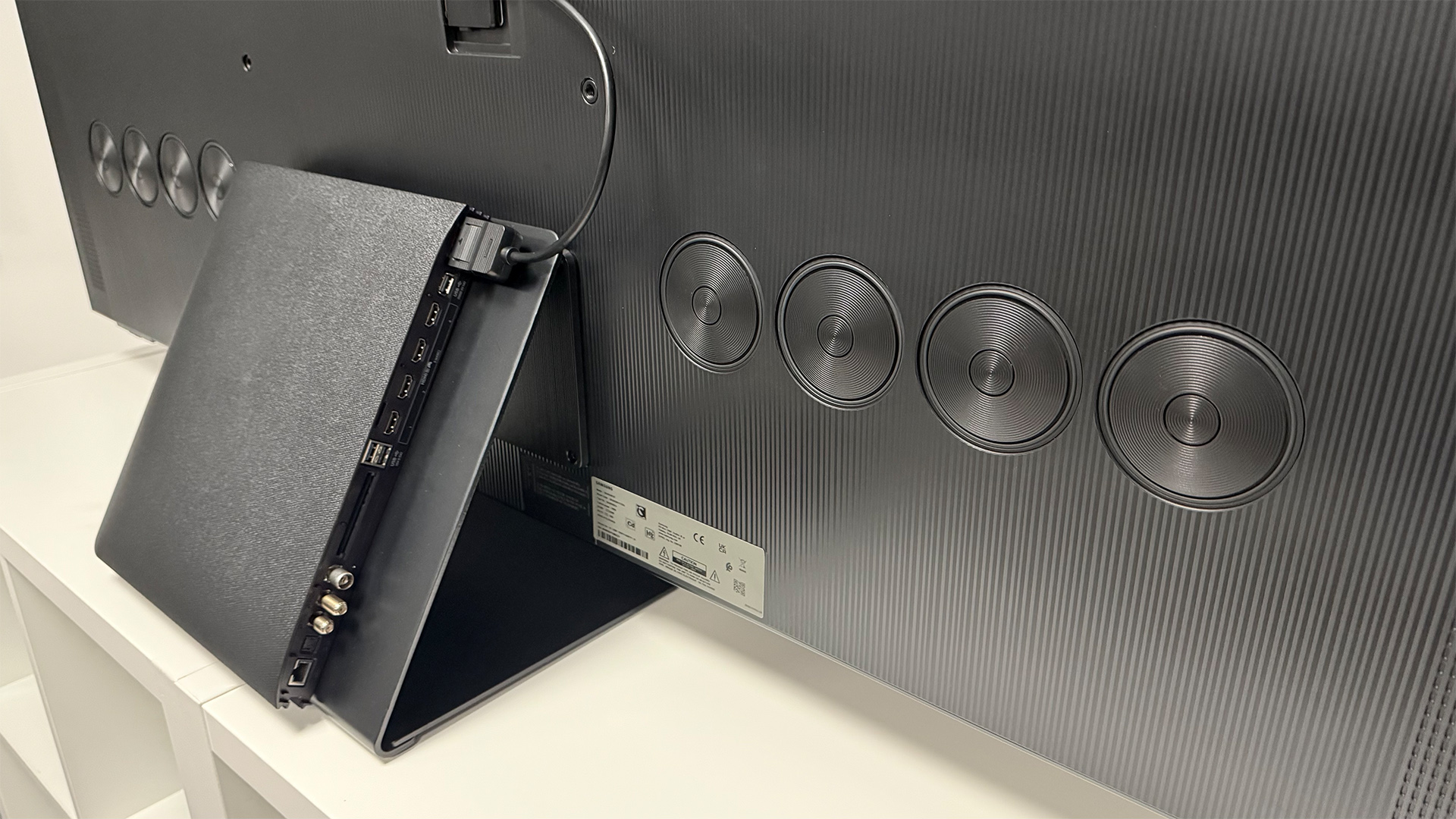
The S95F uses the latest QD-OLED panel technology, which Samsung claims allows the TV to go 30 per cent brighter than its S95D predecessor.
There has also been an upgrade to the anti-glare coating, which is great for suppressing reflections, particularly when compared with the relatively glossy panels of the LG G5 and Panasonic Z95B.
This matte screen does result in raised blacks when viewing in a bright room, but if you take your viewing seriously enough to notice such things, you probably also take it seriously enough to dim your lights. You certainly won’t notice the issue when watching sports, which tend to be bright across the whole display.
As well as being brighter than its predecessor, the S95F’s panel is also faster, with a maximum refresh rate of 165Hz, up from 144Hz on the S95D. While this will only be of use to PC gamers with exceptionally capable rigs right now, as consoles max out at 120Hz, there's no telling what the future holds.
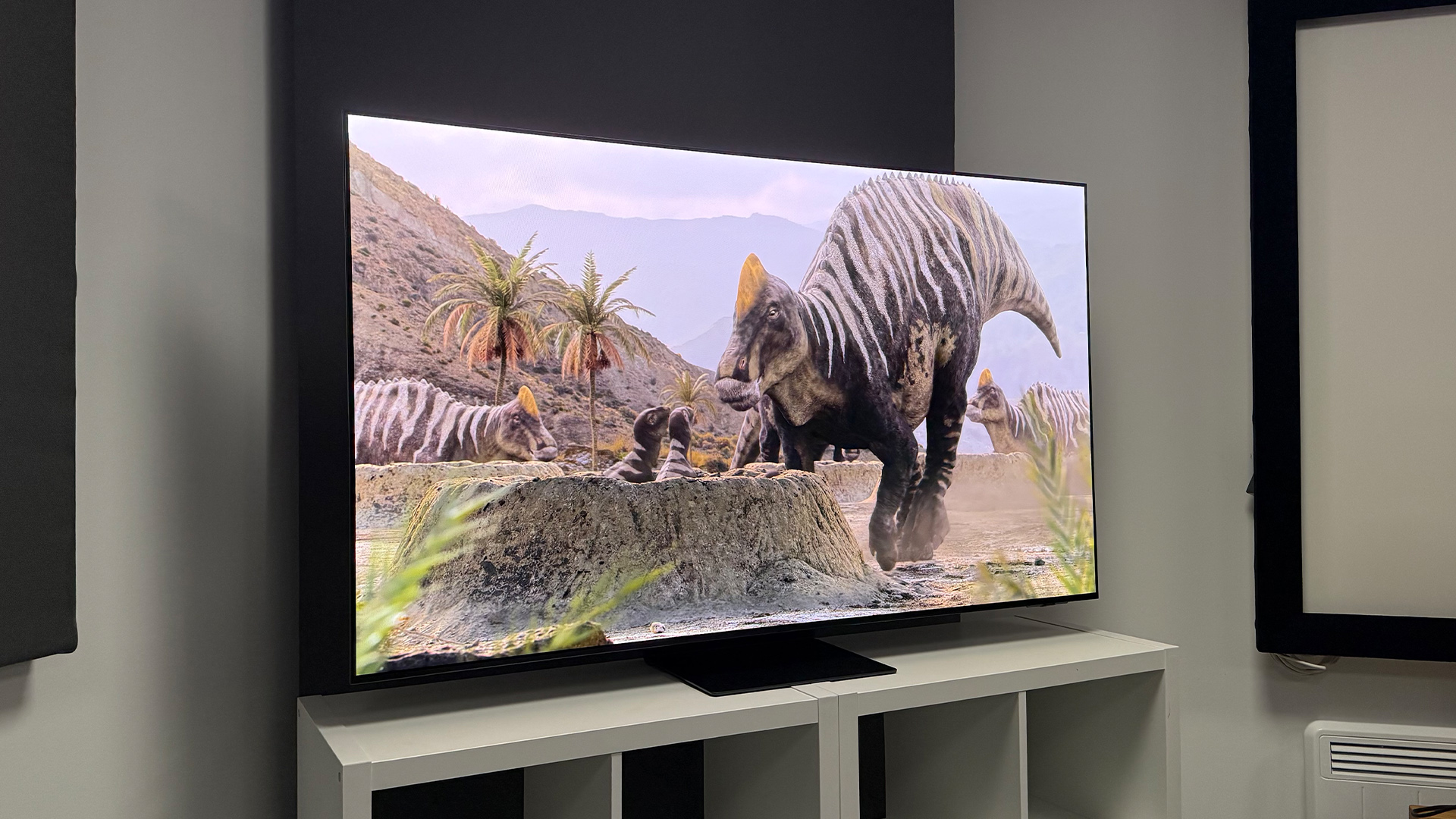
Staying with gaming, the S95F features four full-bandwidth HDMI 2.1 sockets, all of which support signals up to 4K/165Hz, plus VRR and ALLM. There is also the option to stream games using the built-in Tizen operating system, with Samsung's partnerships with huge gaming brands such as Xbox and Nvidia extending into 2025.
One of our favourite AI features from last year's QN900D 8K TV has trickled down to the S95F courtesy of the new NQ4 AI Gen 3 processor. AI Upscaling Pro is now featured on Samsung's 4K models for the first time, which should sharpen up finer details and remove visual imperfections such as jagged lines and fuzzy textures.
HDR support comes in the form of HDR10, HDR10+ and HLG. As ever with Samsung, though, Dolby Vision isn’t supported. Samsung will argue that its own HDR10+ format is just as good as (better than, for that matter!) Dolby Vision, but we disagree – the two formats are alike in their utilisation of contrast-boosting dynamic metadata, but Dolby Vision goes further by also offering as-the-creator-intended settings for colour and sharpness.
While Dolby Vision HDR isn’t supported, Dolby Atmos audio thankfully is, and it's delivered via a 70W, 4.2.2-channel speaker system and Samsung's proprietary OTS+ technology.
The Tizen operating system is slowly finding its way back from the heavily user-unfriendly ‘upgrade’ it received a few years ago, but it still takes a good period of getting used to in terms of finding features and functions. It's flawlessly well-equipped with streaming apps, though, and every service is delivered in the highest quality possible, notwithstanding the aforementioned lack of Dolby Vision.
One slightly divisive feature of the S95F’s OS is the Daily Board, which essentially acts like the ‘ambient’ modes of other modern premium TVs. This displays wallpapers and live information such as news headlines and the weather, and it can be programmed to activate when the TV senses a person entering the room. This will be very appealing to some people and a huge turnoff for others, but it can, of course, be literally turned off.
Picture
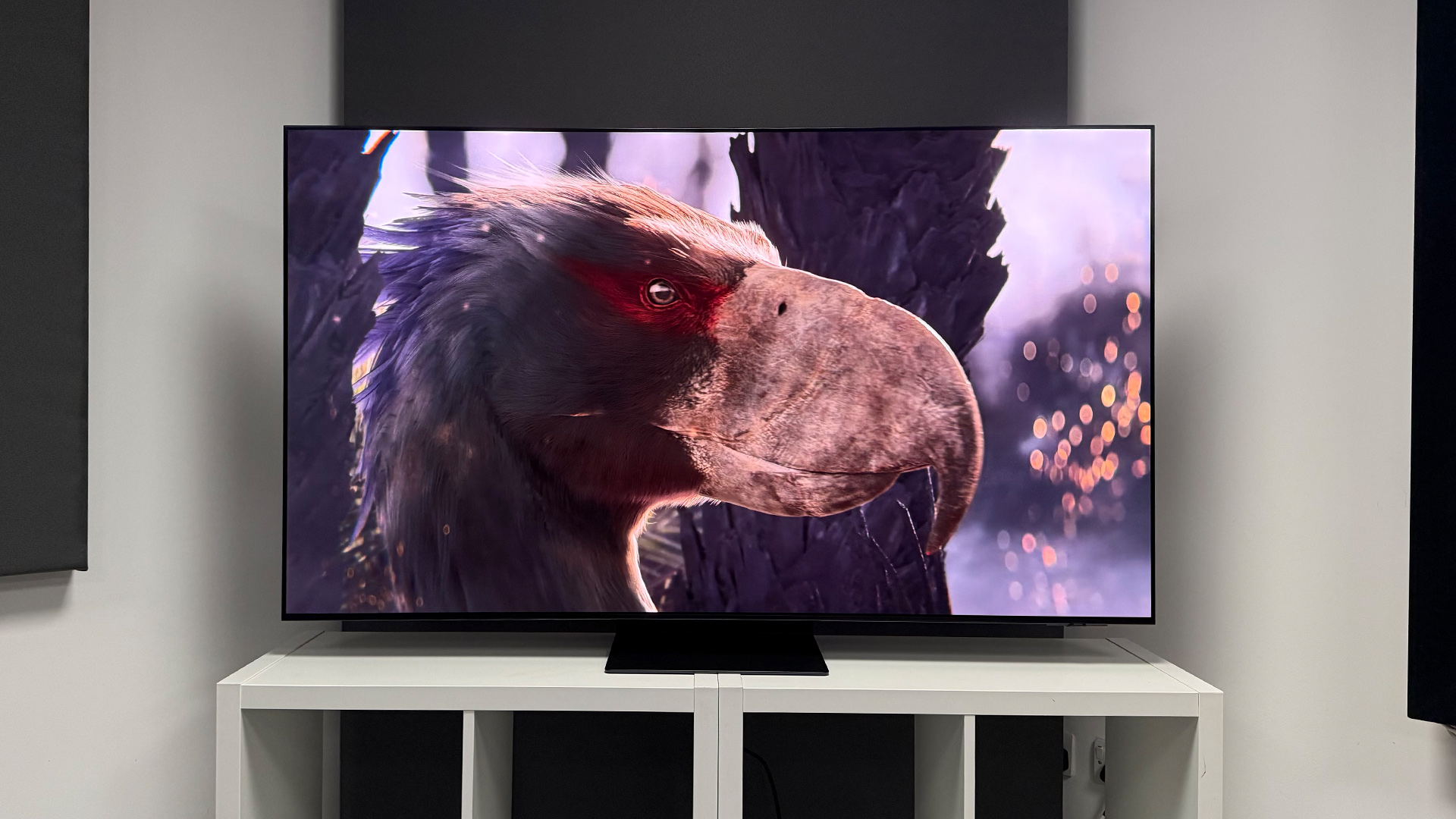
As with most TVs, the Samsung S95F’s default settings make a very poor first impression.
The Eco mode that the TV defaults to with HDR content is very weird – way brighter than you would expect an Eco mode to be, and overly bright all around. The motion processing is horrible, too.
The Movie mode is also overegged, pumping brightness and colours up to slightly gaudy degrees, and still with occasionally unpleasant motion processing. With a few tweaks, this could work well for bright room viewing, but it’s not the nicely extra-punchy accurate preset that you get from the Sony Bravia 8 II’s Cinema preset.
Switch to Filmmaker Mode, though, and the S95F is superb. The only tweaks you might want to make are to the motion processing, as some people might prefer to smooth out the small amount of judder that’s present by default. Just be warned that this judder can’t be removed entirely without adding at least a whiff of the soap opera effect. There’s no Goldilocks motion setting as there is with the Sony Bravia 8 II.
For viewing in a brighter room, we recommend sticking with Filmmaker Mode and switching the HDR Tone Mapping from Static to Active, rather than switching to the Movie preset. This adjustment is also recommended for people who simply want a bit of extra pop at the expense of a small amount of authenticity.
Set up in Filmmaker Mode, it’s remarkable how close the Samsung S95F gets to the Sony Bravia 8 II – a TV that we felt might have set an unmatchable benchmark for its 2025 rivals.
The punch and vibrancy of the colours are stunning, and this combines with the brilliant brightness of the new panel to create an image that really pops, particularly when viewing bright content, such as Spider-Man: Into The Spider-Verse. Kingpin’s dimension-melding machine springs into life in gloriously vivid fashion, and the explosion that follows is dazzling in the best possible way. With this sort of content, the Samsung S95F is even more impressive than the Sony Bravia 8 II.
With more grounded content, it becomes clear that the S95F is very slightly exaggerating its colours, particularly reds, and as we switch between several of our test favourites in 4K HDR10, such as Civil War, Tenet and No Time To Die, we notice that skin tones often look a little more flushed than they should.
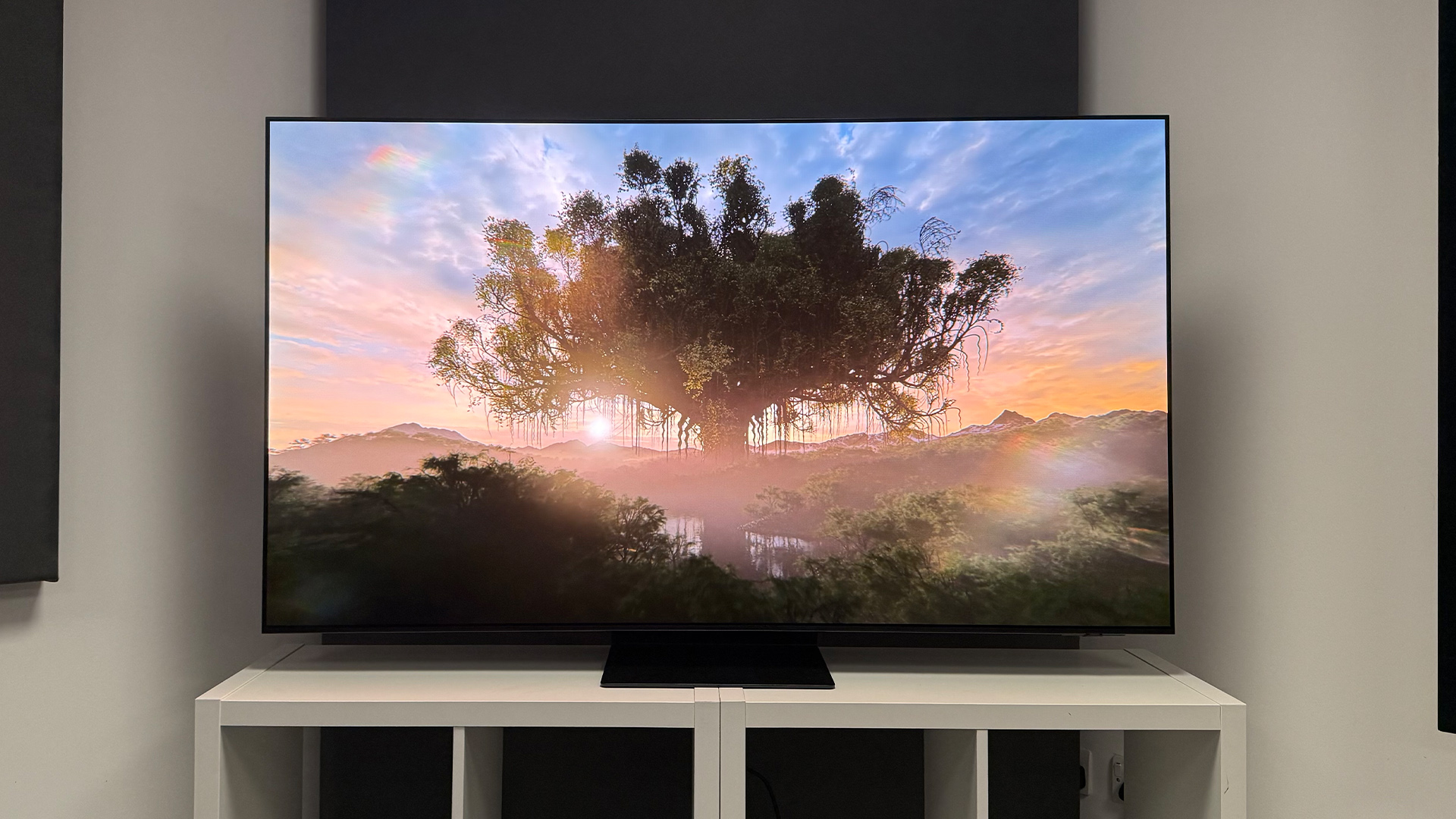
This really is slight, though, and will likely prove barely noticeable when watching the TV in isolation, but the side-by-side comparison proves that the Sony is subtly more balanced. Some people may, in fact, prefer the S95F’s delivery, choosing to sacrifice a sliver of authenticity for a nice boost to vibrancy.
Colours are consistent from the darkest to the brightest parts of the image, too – an inherent advantage of the QD-OLED technology of the S95F and its Sony contemporary, with the Primary RGB Tandem OLED LG G5 and Panasonic Z95B proving to be slightly less vibrant and slightly less consistent at the extremes.
The S95F also delivers every 4K movie we throw at it with stunning sharpness and detail. While the Sony Bravia 8 II just has the edge in terms of solidity and perceived three-dimensionality, the Samsung gets remarkably close, delivering an image that’s super-crisp and deep without any sense of exaggeration or artificiality.
While the Samsung S95F has very few genuine flaws where picture quality is concerned, there is one that’s notable: black crush. This is where the darkest shadow details are lost to pure black. This extra blackness helps make the image look super-solid and dynamic, but it means that some of the subtlety in dark scenes is lost.
The Sony Bravia 8 II is the new master in this area, trumping all of its rivals for dark gradation, but it’s telling that the S95F is also behind the LG G5 in this regard, and the G5 has some slight black crush of its own.
This isn’t a huge flaw by any means – we’re talking about the finest, most subtle shadow details – but it is one way in which there’s a clear performance hierarchy.
For what it’s worth, you can adjust the S95F’s approach to shadow detail, using the cunningly titled Shadow Detail setting, but while this does reveal a little more dark detail, it also slightly raises the black floor so that heavy black scenes (the deep space opening of Alien: Romulus, for example) look very slightly grey.
This still doesn’t get the S95F to the Sony’s level of shadow detail recovery anyway, so our recommendation is simply to leave the Shadow Detail setting alone.
Dropping down from 4K HDR to 1080p SDR with a stream of The Usual Suspects from the Apple TV app proves that the S95F is a very accomplished upscaler. The delivery is clean and controlled, without all of the lovely, authentic film grain having been removed, and the contrast and colours are nicely balanced, with only a smidge of black crush and over-saturation.
Sound
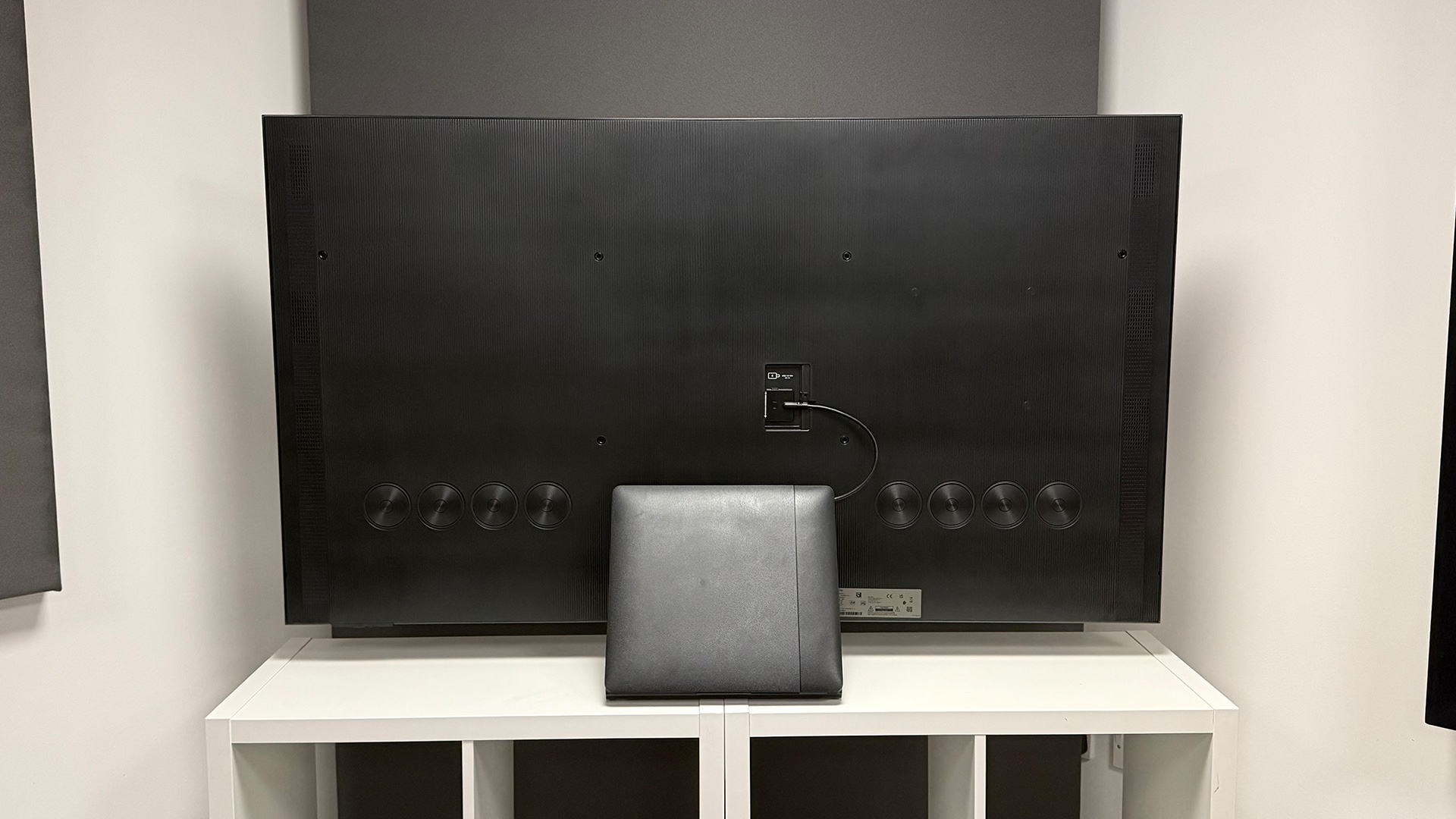
In some ways, the S95F sounds pretty impressive for such a thin TV with an invisible (from the front) speaker system.
There’s significantly more bass than one would expect, a generally balanced tonal range, clear dialogue, and a soundstage that extends fairly effectively beyond the TV's side and top edges.
It certainly sounds better than the LG G5, particularly if you keep the volume low.
But the S95F is a rather quiet TV, and you find yourself having to pump up the volume in an effort to unlock some drama. Unfortunately, this adds stress to the system, and you get quite a lot of buzz from several of the speakers during loud and/or weighty sections of a movie.
The louder the set goes, the more fuzz and crackle it produces. And not just in huge explosive moments, either. The music that plays in the background while The Protagonist trains inside a wind turbine in Tenet isn’t what you would typically think of as challenging, but the Samsung becomes a mess of fuzz.
This fuzz creeps in long before the TV has hit a satisfying volume level, too.
There are a few sound settings and features that you can change, but none that solve the problem. In fact, they add new problems of their own.
Switching the Sound Mode from Standard to Amplify is akin to pushing the Loudness button on an old bit of hi-fi and, as we’ve established, loudness is the S95F’s biggest sonic problem.
In the AI menus, meanwhile, you will find Active Voice Amplifier Pro and Adaptive Sound Pro.
Active Voice Amplifier Pro is best avoided unless you’re really struggling with dialogue intelligibility, as it seems to narrow and thin the sound in a way that isn’t pleasant at all.
Adaptive Sound Pro, meanwhile, initially seems quite impressive, given how it boosts bass and treble, but it results in a rather uneven presentation with an over-aggressive top end.
So while the S95F’s built-in sound system is fine for everyday TV, it’s not up to the task of delivering a satisfying movie experience. That said, while rivals such as the Sony Bravia 8 II and Panasonic Z95B sound significantly better, all of these sets really demand to be partnered with a dedicated sound system, so the Samsung’s deficiencies here aren’t enough to cost it a star in its overall rating.
Verdict
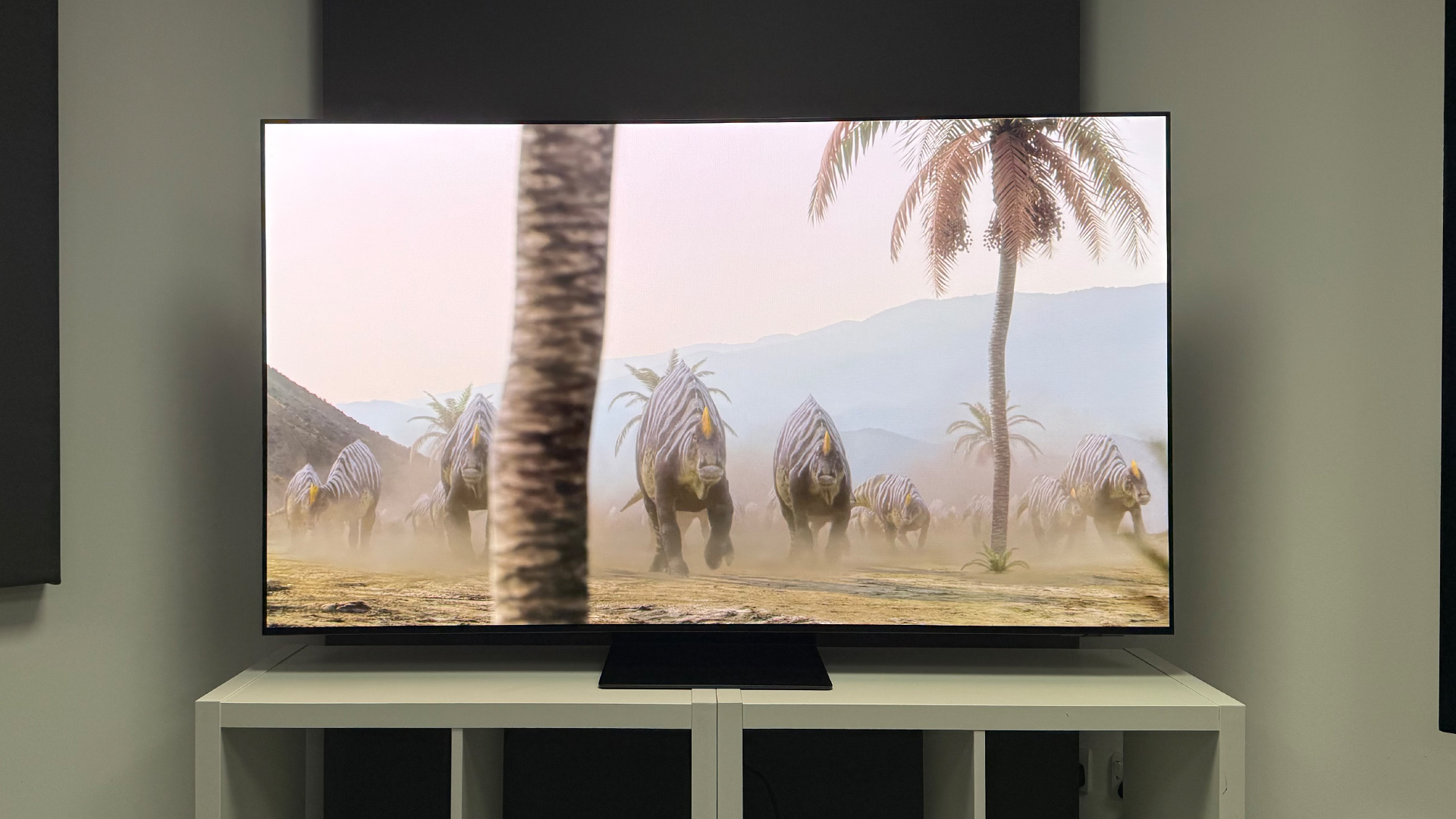
Sound aside, the Samsung S95F is every bit the five-star stunner.
Vibrant, punchy and more crisp than a lifetime’s supply of Walkers Max, it’s a thrilling TV to live with and use, yet it also continues Samsung’s trajectory in producing more balanced and cinematically authentic TVs.
For picture quality, the Sony Bravia 8 II still has the edge. The S95F isn’t quite as realistic in its colours, it doesn’t dig up quite as much shadow detail, it isn’t quite as three-dimensional, and its motion processing isn’t quite as accomplished.
It’s very close in every one of those regards, though, and there are many who will gladly accept these tiny, relative flaws in order to get the far sexier design and four HDMI 2.1 sockets.
SCORES
- Picture 5
- Sound 3
- Features 5
MORE:
Read our review of the Sony Bravia 8 II
Also consider the LG G5
Read our Panasonic Z95B review
Best TVs: flagship OLEDs and budget LED sets tried and tested
Tom Parsons has been writing about TV, AV and hi-fi products (not to mention plenty of other 'gadgets' and even cars) for over 15 years. He began his career as What Hi-Fi?'s Staff Writer and is now the TV and AV Editor. In between, he worked as Reviews Editor and then Deputy Editor at Stuff, and over the years has had his work featured in publications such as T3, The Telegraph and Louder. He's also appeared on BBC News, BBC World Service, BBC Radio 4 and Sky Swipe. In his spare time Tom is a runner and gamer.
- Lewis EmpsonSenior Staff Writer
- Alastair StevensonEditor in Chief
You must confirm your public display name before commenting
Please logout and then login again, you will then be prompted to enter your display name.
